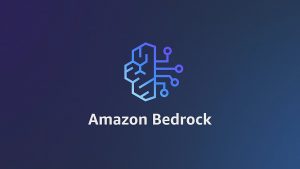Harvard prof. outlines barriers to global Internet governance | #MITECIR
![]() Venkatesh Naryanamurti, a Benjamin Peirce Professor of Technology and Public Policy at Harvard, was at the recently concluded MIT ECIR Workshop event to share his unique perspective on innovation and policymaking in the interconnected era.
Venkatesh Naryanamurti, a Benjamin Peirce Professor of Technology and Public Policy at Harvard, was at the recently concluded MIT ECIR Workshop event to share his unique perspective on innovation and policymaking in the interconnected era.
Naryanamurti, known for his work in the areas of condensed matter and applied physics, believes that innovation is a creative process just like any other form of research. The rapid pace of IT sets it apart as an exceptional catalyst for scientific discovery, he says, with the Internet facilitating effective communications among thought leaders on a global scale. But the incredible pace of technological change should not be taken for granted: now that foreign powers, including China and Russia, are vying for online prominence, the cyber governance structure needs to be realigned with today’s geopolitical landscape.
Transforming the U.S.-centric Internet into a multi-stakeholder environment won’t be easy: policymakers will have to persuade Google, Amazon and other dominant tech firms into giving up their advantageous position for the greater good. Naryanamurti says that for this vision to truly come to together, mutual trust is required at multiple levels.
“We have to build that trust. Ultimately, our companies have to realize that they are now global companies; the populations which are going to grow are in China and India and Brazil and all those other places. So I think this will evolve, and ultimately, it has to become multi-stakeholder, multi-lateral,” he remarks.
Trust is at the heart of open source, which Naryanamurti views as the most accommodating governance model for cyberspace. But successfully implementing a set of cohesive rules for the digital universe will require much than just a shared vision – the language divide between technologists and policymakers must also be bridged. Failing to do so could lead to the fracturing of the Internet, a scenario that would adversely affect commerce and innovation worldwide.
“German companies are also global companies, Chinese companies are global companies, and therefore they will have to be able work with each other,” Naryanamurti explains. “My own view is that the main Internet should be really an open Internet. For certain very, very special things you might need a Chinese Internet, a military Internet, and so on.”
Looking ahead, another major barrier to governance reform is the growing threat of cyber attacks from both state and non-state actors such as criminal organizations. Enforcement authorities will have to use all tools at their disposal, including analytics, to stay ahead of hackers.
photo credit: hjl via photopin cc
A message from John Furrier, co-founder of SiliconANGLE:
Your vote of support is important to us and it helps us keep the content FREE.
One click below supports our mission to provide free, deep, and relevant content.
Join our community on YouTube
Join the community that includes more than 15,000 #CubeAlumni experts, including Amazon.com CEO Andy Jassy, Dell Technologies founder and CEO Michael Dell, Intel CEO Pat Gelsinger, and many more luminaries and experts.
THANK YOU













